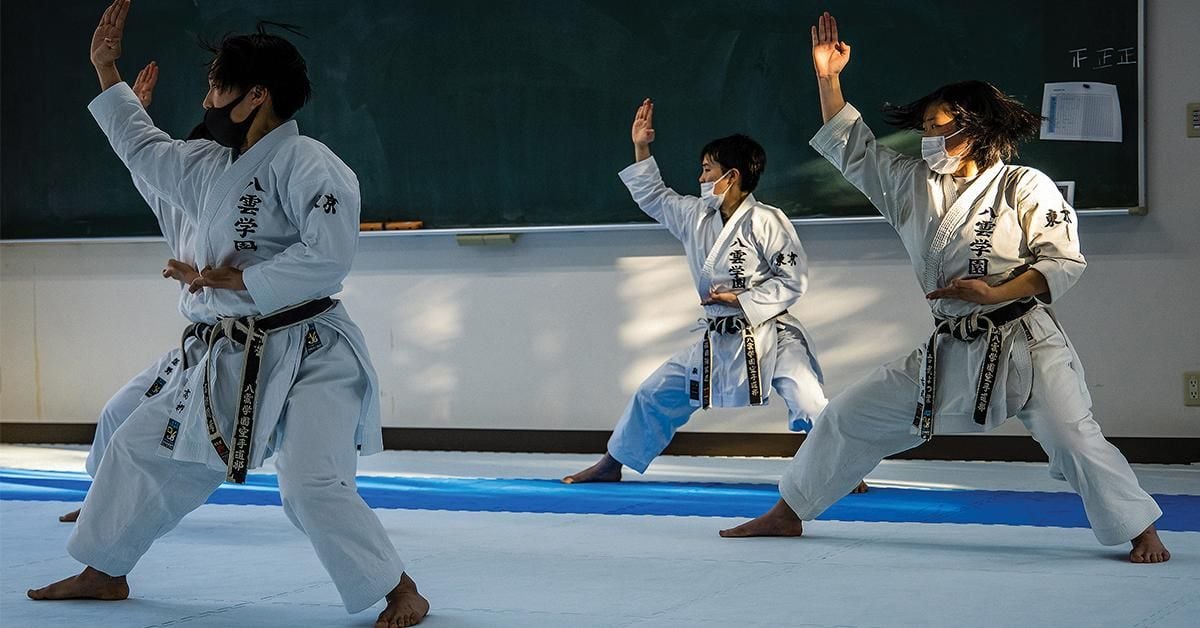Pretty thorough and informative for a general audience fluff piece. A couple of things, though, brought a smile to my face. The first was a quote, "Until 1990's, tournaments had virtually no rules." That's news to the many thousands of competitors who fought in the 1960's, 70's and 80's. I fought in the late 60's to mid 70's, and while it was pretty rough on occasion, there were definitely rules like no eyes, throat, or joint strikes. There were also rules about excessive contact, but the meaning of "excessive" seemed to refer to only excessive blood or KO's.
I wasn't studying karate at that time, so of course I defer to you on that. I have heard elders in my dojo talk about the full contact tournaments of the 1980s, but I wasn't there, can't say.
The other humorous statement was, "Okinawan karate has never been about beating your opponent." Now, I understand the piece had the agenda to support the upcominabsolug Olympics and their ideals, and not to offend the readership's tender sensibilities, but this is of course inaccurate. There were moral and ethical principles instilled, but "beating the opponent" was the MAIN idea.
I'll parse their language a bit and say that it wasn't about beating the opponent in the sense of competition because original Okinawan karate wasn't about competition; but it certainly was about self-defense, which is basically the same thing. So you are correct again.
I was actually pleased, however, to see the author's comments about karate being for self-development and improvement of character.
I'm not even sure that's true of Okinawan karate as much as it is about Japanese karate when it became a 'do' as in karatedo, but I do not know the history enough to know when this introspective look at the elements of karate began, in Okinawa or in Japan.
I know that there has always been some spirited discussion about karate as jutsu versus karate as do. One might say baseball has no inner life; hit the ball, catch the ball, throw the ball. Everything is what it appears to be on the surface. One might say that meditation has no outer life. Thinking about anything or nothing is a formless activity that cannot be seen from the outside, scored, graded, or otherwise tested. What is karate? Certainly it has an outward purpose, and most of us who train karate train those things. Self defense; hitting, kicking, blocking, etc. And yet, to some of us, there is more to it than just that. This is something the author at least touched on in his article, and I appreciated reading it.
It will be interesting to see the effect Olympic karate has on the MA world and business. To its credit, the article did broach the subject of if Olympic rules will further dilute or sterilize the art in the name of competitive and TV spectator expediency. Time will tell.
Agreed. I find it less interesting to me, probably because I don't really care what the world does with karate, only what I do with karate. I doubt very much that I'll ever find myself changing dojos or schools, etc. If 99% of all karate schools began to teach a sport-based or olympic-style karate for competition, I'm fine with it, since it doesn't affect me. But I do agree that it is interesting to see how the world takes karate post-olympics and during the era of the striking and grappling arts spectacle that is MMA and it's ilk.

 www.smithsonianmag.com
www.smithsonianmag.com

